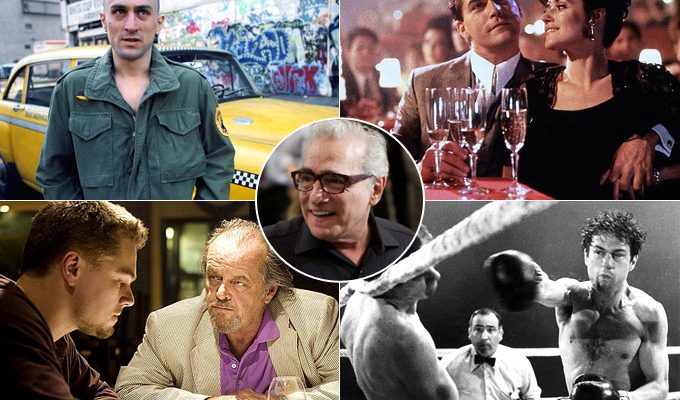 “Hugo” (2011)
“Hugo” (2011)
The films of Martin Scorsese often have a psychological weight, themes of sin, guilt, absolution, respect, power, et al, but infrequently do they have a truly resonant and lasting emotional one. Often it’s simply because Scorsese’s central preoccupations have lain elsewhere, but how heartening was it to see the filmmaker stray into such warmly emotive territory with the genuinely personal “Hugo.” An enchanting children’s tale shot in 3D and set in 1930s Paris, “Hugo” chronicles a tumultuous period in the life of an orphan living with the walls of a bustling train station and secretly maintaining its gargantuan clocks. An adaptation of Brian Selznick‘s award-winning novel “The Invention of Hugo Cabret” Scorsese’s picture centers on a mystery involving Hugo’s late father, an automaton and bitter toy-shop owner. Visual splendor is always in Scorsese’s back pocket, but in “Hugo,” the luxurious use of 3D (really the first post-“Avatar” occasion on which the extra dimension really added to the experience), and care he takes over the emotional impact, is virtuosic. A touching ode to the wonders of imagination and cinematic history (Ben Kingsley‘s character turns out to be the rather important figure Georges Méliès), at 125 minutes, “Hugo” admittedly is overlong and has pacing issues (as a kids movie it was wholeheartedly rejected in North America and became a domestic flop). And it is true that it’s difficult to see where the audience for such a deliberately old-fashioned paean to a bygone age and an evolving technology might have been found amongst the modern tots and tweens for whom it was ostensibly made. But for adults like us willing to embrace its slow, rich charms and alive to the kind affection for cinema that only a devoted cinephile like Martin Scorsese can bring, “Hugo” is a loveletter to the imagination and a warm, generous effort on Scorsese’s part to provide us all with the key to the wonderful world of film that makes him tick. [B]
While we’ve endeavored to cover all of Scorsese’s theatrical features, and some of his TV, the man has a demonic work ethic, and is also responsible for directing a few other television projects, not least among them the “Boardwalk Empire” pilot episode, his only music video for Michael Jackson’s “Bad” and an episode of Steven Spielberg‘s “Amazing Stories,” along with one episode of music documentary series “The Blues.” He also has a bevy of short films to his name, aside from the justly famous “Italianamerican” which we’ve included in the main list. Among them are the largely unavailable “Vesuvius VI,” comedies “What’s a Nice Girl Like You Doing in a Place Like This?” and “It’s Not Just You, Murray!” (featuring the first Scorsese hoodlum perhaps?). Then came student film “The Big Shave,” and “Street Scenes,” a documentary about anti-Vietnam activity in New York which at 75 mins is a little long to consider a short, but usually gets grouped along with the shorts due its relative unavailability.
Since his graduation to feature filmmaking, Scorsese has contributed segments to a couple of portmanteau films (all of which are given their own entry above), and also a documentary short, written by “Age of Innocence” and “Gangs of New York” writer Jay Cocks, about Giorgio Armani called “Made in Milan” in 1990. He then made “The Neighbourhood” which was included in the “Concert for New York City” that took place after 9/11 and used some footage from “My Voyage to Italy” and new candid interview material with Scorsese and the people now living in the Elizabeth Street area where he grew up. And the 9/11 loomed large also 2004’s “Lady by the Sea” his first directorial team up with “Letter to Elia“‘s Kent Jones, about the enduring legacy of the Statue of Liberty. And finally in 2007 he made “The Key to Reserva,” actually essentially a long commercial for Freixenet Cava, but a tremendously warm inside joke featuring Scorsese himself and his editor Thelma Schoonmaker, as they pay homage to Hitchcock by pretending to have found some lost pages of a script and recreating them. Starring Simon Baker and Michael Stuhlbarg, and shoehorning in references to multiple Hitchcock films, but primarily “North by Northwest,” it’s a trifle, really, but a sweet one and, since it’s got kind of a holiday vibe, we thought we’d include it for you below. Enjoy, as we hope you enjoyed the retrospective, and a very Scorsese Christmas (that is to say, abounding in vigor and family and life, rather than violence and angst) to you all.
–Jessica Kiang, Rodrigo Perez, Erik McClanahan, Drew Taylor, Katie Walsh, Mark Zhuravsky, Kevin Jagernauth, Kimber Myers

